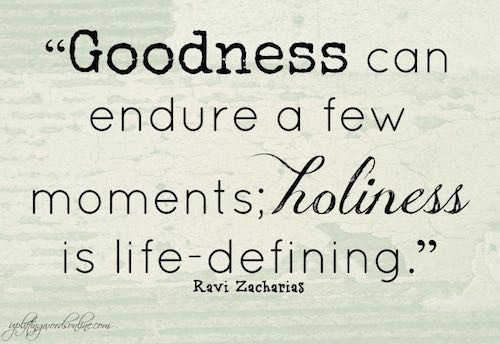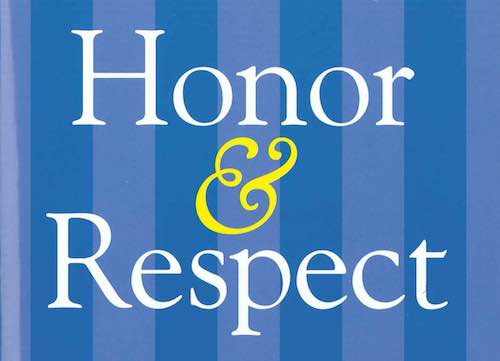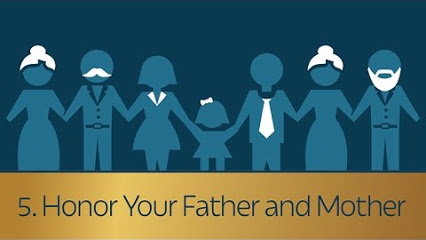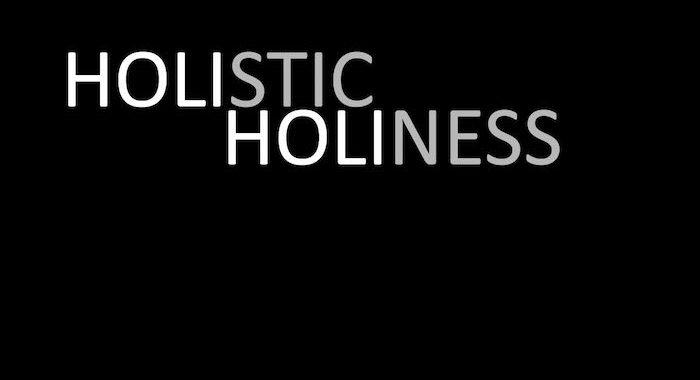A friend, whom we’ll call Jakob, stopped by my apartment in Jerusalem the other day. We hadn’t seen each other in a few weeks and since Passover had just finished the week before, I asked him how his Passover went. He told me that it was wonderful. He then went on to explain that he and his wife were invited to a local rabbi’s home for the Passover meal. There was another family who was invited as well and they all had an amazing time together.
Jakob then told me that one of the things that really stood out to him about the evening was the way in which everyone interacted with one of the children. Jakob explained that one of the children from the other family who was also invited had a mental disability and he sometimes acted in a socially awkward manner. Jakob explained that the father of the young man with the disability handled him wonderfully with love and patience. Jakob was really taken with this true expression of fatherly love that was bestowed on this young man whom society would not naturally accept.
Beyond the unique relationship between the father and his challenged son, Jakob told me that at one point the young man went up to the rabbi and began kissing him on the head as a way to say thank you for hosting him and his family. The rabbi could have easily pushed him away or stopped this unusual expression of affection, however, the rabbi received the young man for who he was and allowed him to show honor and affection in the only way he knew how. Jakob was so moved by these life-giving expressions which seemed to reveal the heart of God.
The Testimony of Our Lives
Our actions and the way in which we live have an impact on others. The way that we treat others, the way in which we interact with others, and the manner in which we speak to others effect those around us in one way or another. How are others viewing the words and actions of my life? How are others viewing the words and actions of your life? We need to ask ourselves this question from time to time, if not daily.
Beyond even what others see in our lives, we must also allow God to examine us and test us to make sure that we are walking according to His ways. How does God view our words and our actions towards others? This week’s Torah Portion focuses on this very issue of the manner in which we relate to others.
Watch this video for a brief overview of this week’s commentary
Be Holy!
This week’s Torah Portion is found in Leviticus chapters 19 and 20 and is called “קדושים” – “kedoshim,” which means “holy” in the plural form. The name for this week’s Torah Portion is found in the first couple of verses of Leviticus chapter 19:
Then the LORD spoke to Moses, saying: “Speak to all the congregation of the sons of Israel and say to them, ‘You shall be holy, for I the LORD your God am holy.” – Lev. 19:1-2
God commanded the children of Israel to “be holy” because they now belonged to Him and they had a spiritual Father to represent. The LORD Himself is holy and God desired, even demanded, that His children be like Him. To be holy is to be like God.
So what does it mean to “be holy?” What does holiness look like? We use the word “holy” in different ways to mean different things. What does holiness look like from God’s perspective? It is true that the Bible as a whole is a guidebook on how to live a holy life, however, Leviticus chapters 19 and 20 provide details of what holiness looks like in a few key areas of life. In this week’s study I will be focusing on Leviticus 19 and concentrating on one key aspect of what it means to be holy.

Revere Your Mother and Your Father
The first thing that God commanded the children of Israel in regard to being holy was to revere one’s mother and father:
Every one of you shall reverence his mother and his father, and you shall keep My sabbaths; I am the LORD your God. – Lev. 19:3
To revere one’s parents makes the top of God’s list of living a holy life. In this verse we also read that God commanded His Sabbaths to be kept. To read more about the importance of keeping the Sabbaths of the LORD, I recommend the following article: Moses on the Mountain
The command to “honor your father and mother” is found in the Ten Commandments (Ex. 20:12) and it basically parallels this command to revere one’s mother and father. In fact, many of the commandments detailed in Leviticus 19 parallel the Ten Commandments. I’d like to illustrate this by comparing the commandments found in Leviticus 19 with the Ten Commandments given in Exodus 20:
- Don’t have other gods Ex. 20:3 – Lev. 19:4
- Don’t make graven images Ex. 20:4 – Lev. 19:4
- Don’t take the Name of the LORD in vain Ex. 20:7 – Lev. 19:12
- Remember the Sabbath Day to keep it holy Ex. 20:8-11 – Lev. 19:3
- Honor your father and mother – Ex. 20:12 – Lev. 19:3
- Don’t murder Ex. 20:13 –
- Don’t commit adultery Ex. 20:14 –
- Don’t steal Ex. 20:15 – Lev. 19:11
- Don’t bear false witness Ex. 20:16 – Lev. 19:11
- Don’t covet Ex. 20:17 –
Seven out of the Ten Commandments in Exodus 20 are found in Leviticus 19. Although the command to revere one’s father and mother is found in both Exodus 20 and Leviticus 19, there is a slight difference in wording that is worth pointing out.
In Exodus 20:12 we read “כבד את אביך ואת אמך” – “kaved et avicha ve’et imecha” – “honor your father and your mother.” In Leviticus 19:3 we read “איש אמו ואביו תיראו” – “ish imo ve’aviv tirahu” – “a man should fear his mother and his father.” The first difference that we see is that the position of father and mother are reversed from Exodus 20:12 to Leviticus 19:3. Beyond the position of father and mother in the two commandments, two different verbs are used in regard to how one’s parents should be treated. One commandment uses the verb “to honor” while the other uses the verb “to reverence” or, more literally, “to fear.” Why does God use two different verbs to describe how one should treat his or her parents?
Honor and Reverence
The rabbinic commentaries mention that it is natural for a child to honor one’s mother and to fear one’s father. God purposely prioritized honoring one’s father and fearing one’s mother to enforce the fact that we need to properly honor and fear both our mother and our father.
The word for “fear”- “ירא” – “yareh” used in Leviticus 19:3 carries with it the meaning of fear in a holy way but also of reverence and respect. This same Hebrew word for fear is used four times in Leviticus chapter 19:
- Every one of you shall fear his mother and his father, and you shall keep My sabbaths; I am the LORD your God. – Lev. 19:3
- You shall not curse a deaf man, nor place a stumbling block before the blind, but you shall fear your God; I am the LORD. – Lev. 19:14
- You shall keep My sabbaths and fear My sanctuary; I am the LORD. – Lev. 19:30
- You shall rise up before the grayheaded and honor the aged, and you shall fear your God; I am the LORD. – Lev. 19:32
We can clearly see how the word fear in these four separate contexts carries the meaning of respect and reverence; it is used once in the context of fearing one’s mother and father, once in the context of fearing God’s sanctuary, and twice in context of honoring others from the position of fearing God.

There should be a holy fear and respect toward one’s parents, toward the holy place of God, and toward God Himself. From this position of holy fear and reverence it should cause us to act in a certain manner toward other people. We treat the brothers and sisters in our family with kindness and love because we respect and fear our parents. We treat the deaf, blind, and elderly in our midst with honor and respect because we fear the God of heaven and earth.
To Be Like God
To show reverence towards one’s parents is part of what it means to be holy and it is also part of what it means to be like God. The phrase, “I am the LORD” or “I am the LORD your God” appears sixteen times in Leviticus 19. I believe that the LORD repeated who He is again and again in this chapter to remind the children of Israel that each of these commandments brings glory to the holiness of God. These commands were to guide them in the path of holiness, which is also the path to being like God. The LORD was reinforcing His identity so that the Israelites would truly understand their identity.
To fear and honor one’s parents is to fear and honor God Himself. God does not deal lightly with those who choose to reject His commandment regarding fearing one’s parents. We see a clear example of this in a commandment which is given in Leviticus chapter 20:
If there is anyone who curses his father or his mother, he shall surely be put to death; he has cursed his father or his mother, his bloodguiltiness is upon him. – Lev. 20:9
The one who refused to revere his mother and father and chose to curse them instead, would bring death to himself. The command to honor and revere one’s parents is important to God. God demands holiness and holiness begins with a proper respect for one’s parents. We see this illustrated in the New Testament as well.

Honoring One’s Parents
Some Pharisees came to Yeshua and questioned why His disciples “transgress the tradition of the elders” by not washing their hands before they ate bread. Yeshua responded with the following rebuke:
“Why do you yourselves transgress the commandment of God for the sake of your tradition? For God said, ‘Honor your father and mother,’ and, ‘He who speaks evil of father or mother is to be put to death.’ But you say, ‘Whoever says to his father or mother, “Whatever I have that would help you has been given to God,” he is not to honor his father or his mother.’ And by this you invalidated the word of God for the sake of your tradition.” – Matt. 15:3-6
Yeshua quoted from the Torah and reminded these men of the command to honor one’s father and mother (Ex. 20:12) and the warning for those who curse their father or mother (Lev. 20:9).
The Pharisees had tried to establish a holiness based on the traditions of men, regarding the washing of hands, and even sought to enforce this standard on others as if it was a commandment of God. Yeshua revealed their hypocrisy and this false standard of holiness. Yeshua then went on to remind them of God’s true standard of holiness, which included honoring one’s parents, and challenged their practice of forfeiting this command for the sake their religious commitment, which was an affront to God’s holy standard.

Holistic Holiness
We are reminded in this week’s Torah Portion of a simple yet foundational commandment, to honor and fear one’s parents. This commandment has nothing to do with who our parents are, what they’ve done, or how we feel about this commandment. God has commanded us to be holy and one aspect of being holy is to honor and fear mother and father. Our obedience to this commandment will effect every part of our life and our relationship to God. Honor your parents and live a holy life before God!
Shabbat Shalom!
If you enjoyed reading this article, share it today with friends! We also invite you to sign up for our weekly Torah Portion commentary on the sidebar to the right.
Help keep our weekly commentaries free and available to all. Click here to donate today:
Torah Portion: Lev. 19:1 – Lev. 20:27
Hafatara: Amos 9:7-15
Return to Torah Portion Homepage
Copyright Jewels of Judaism. All rights reserved 2016


